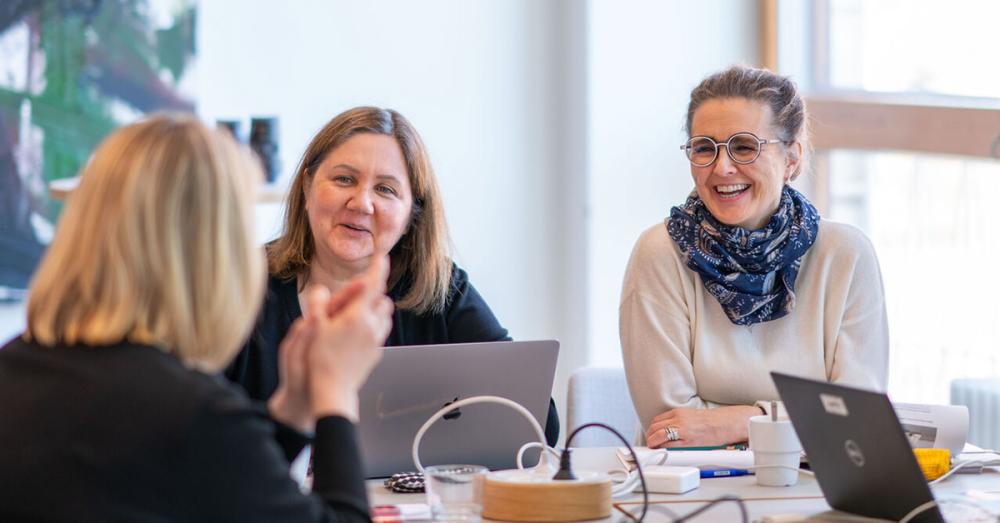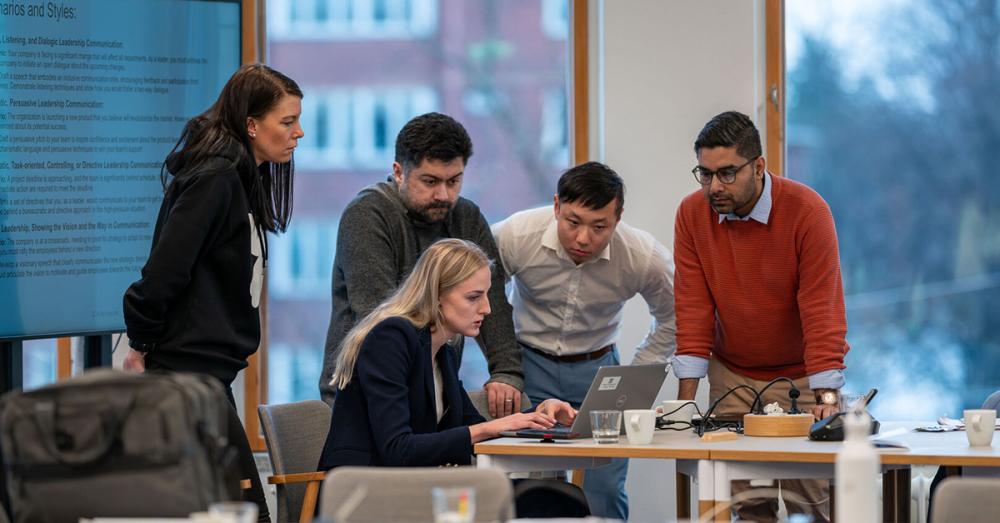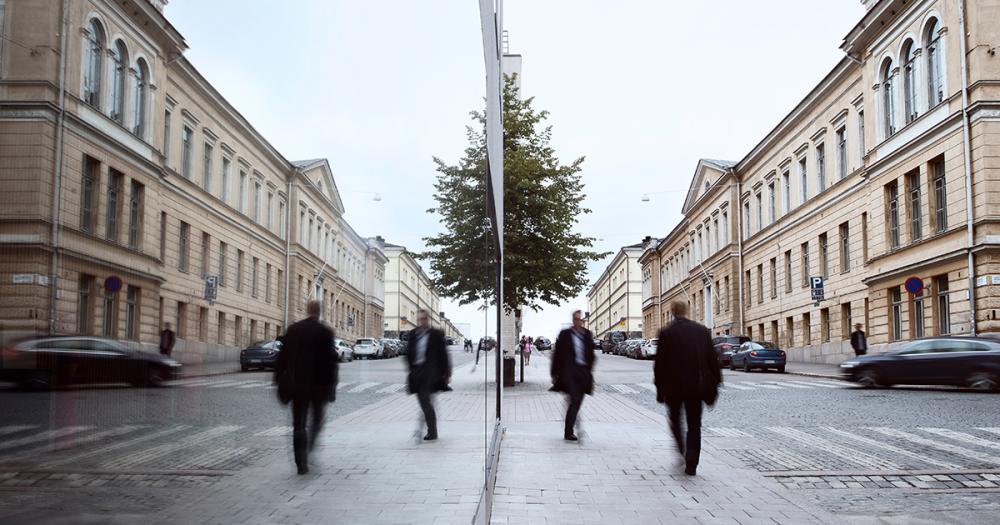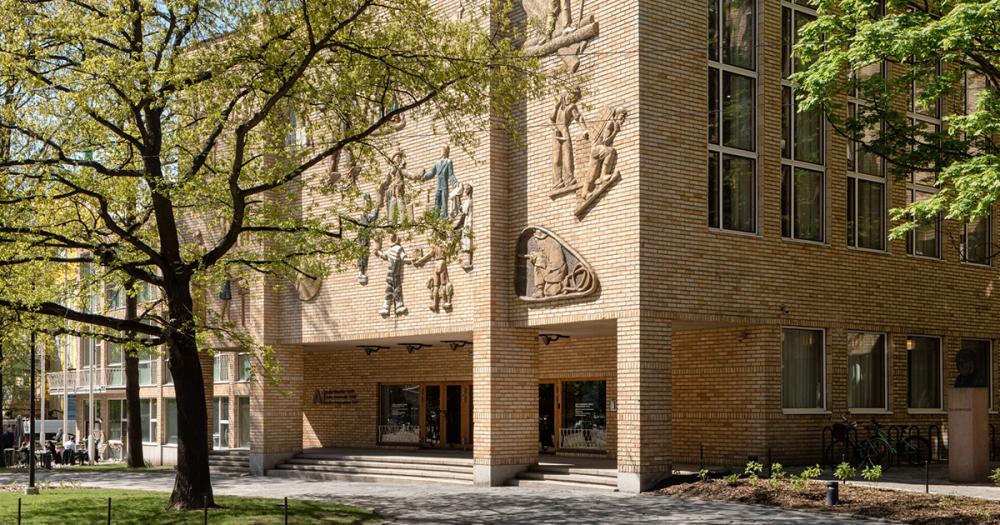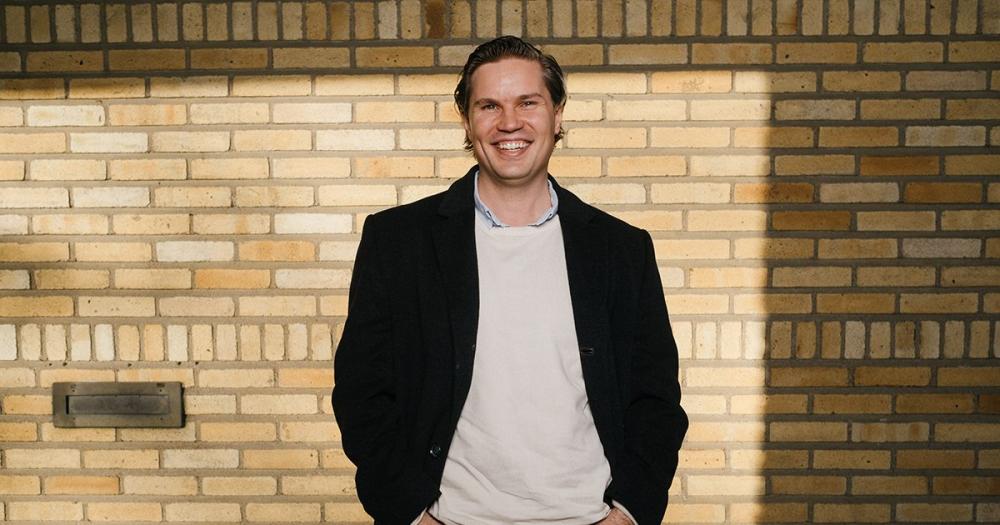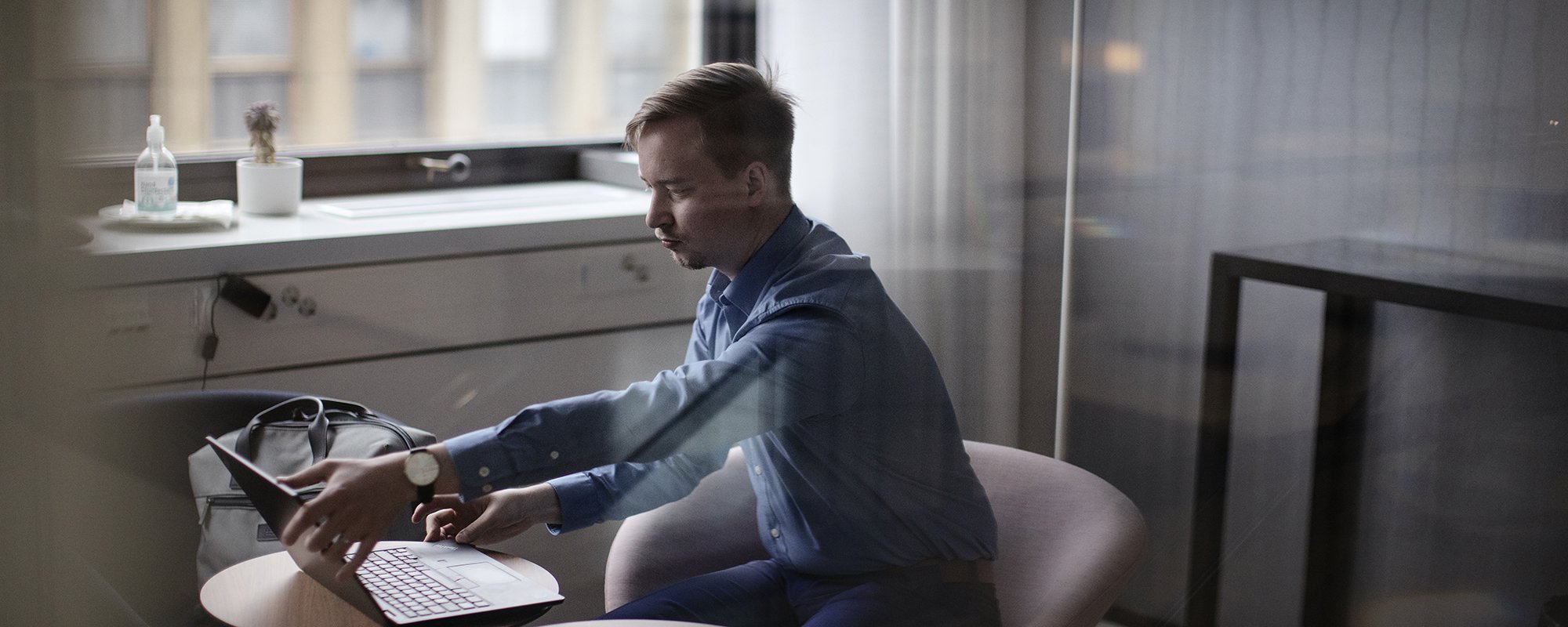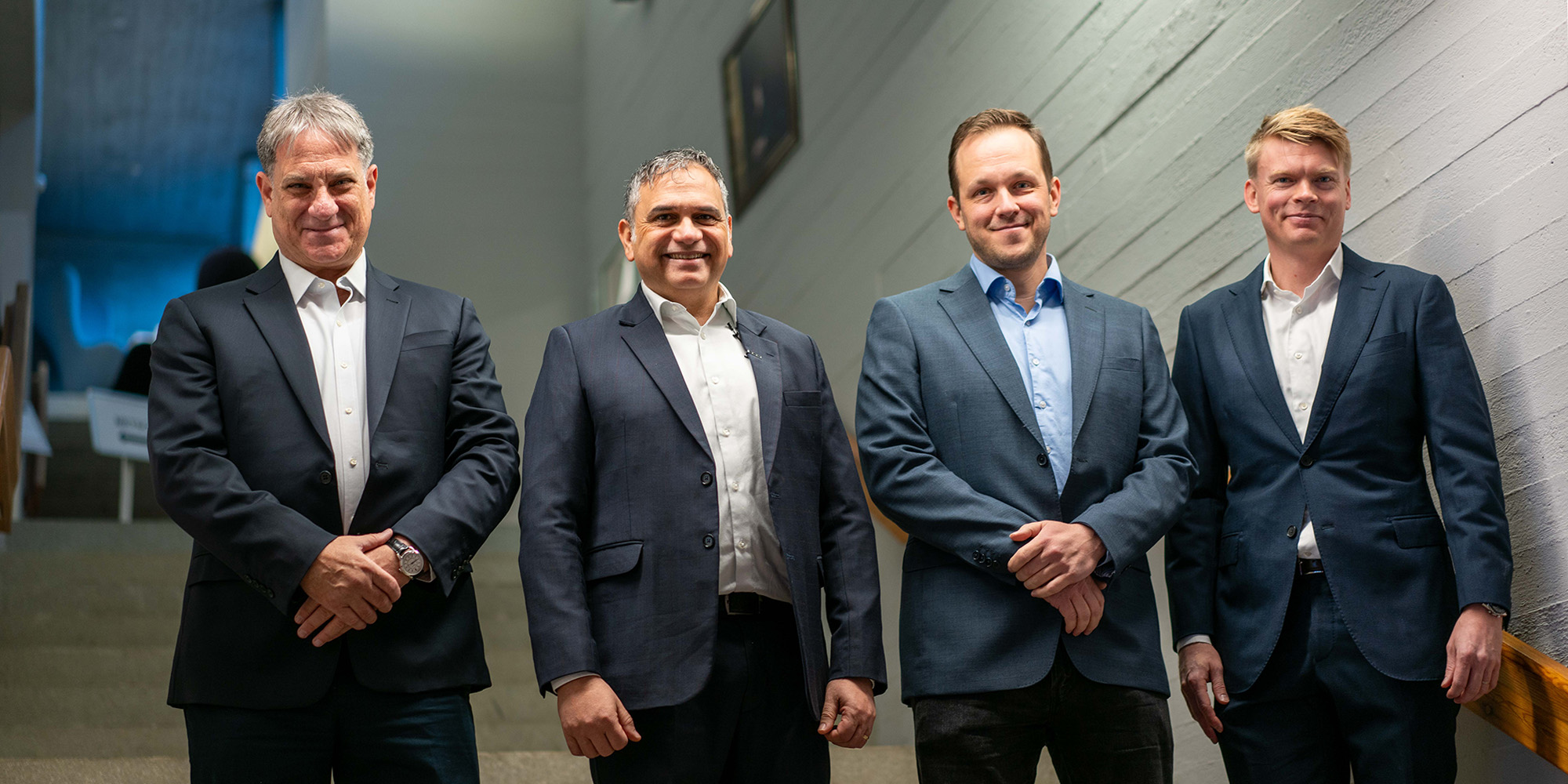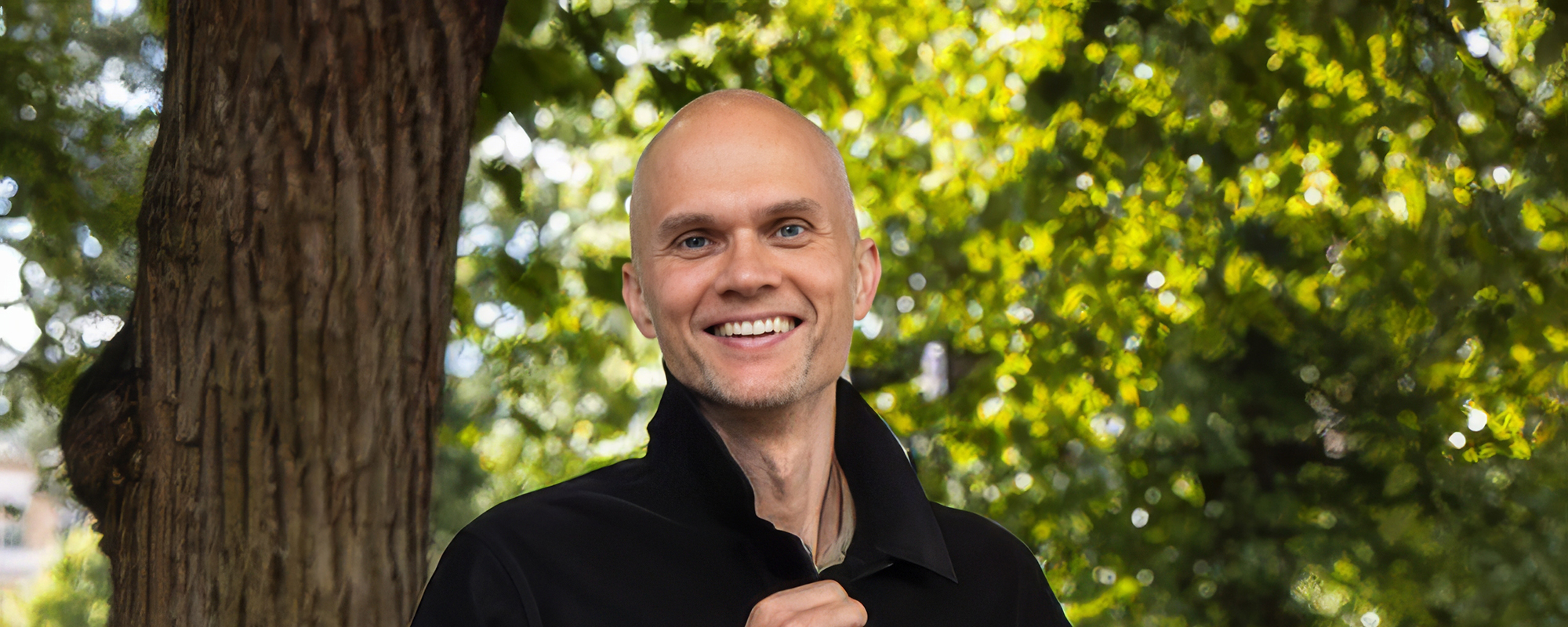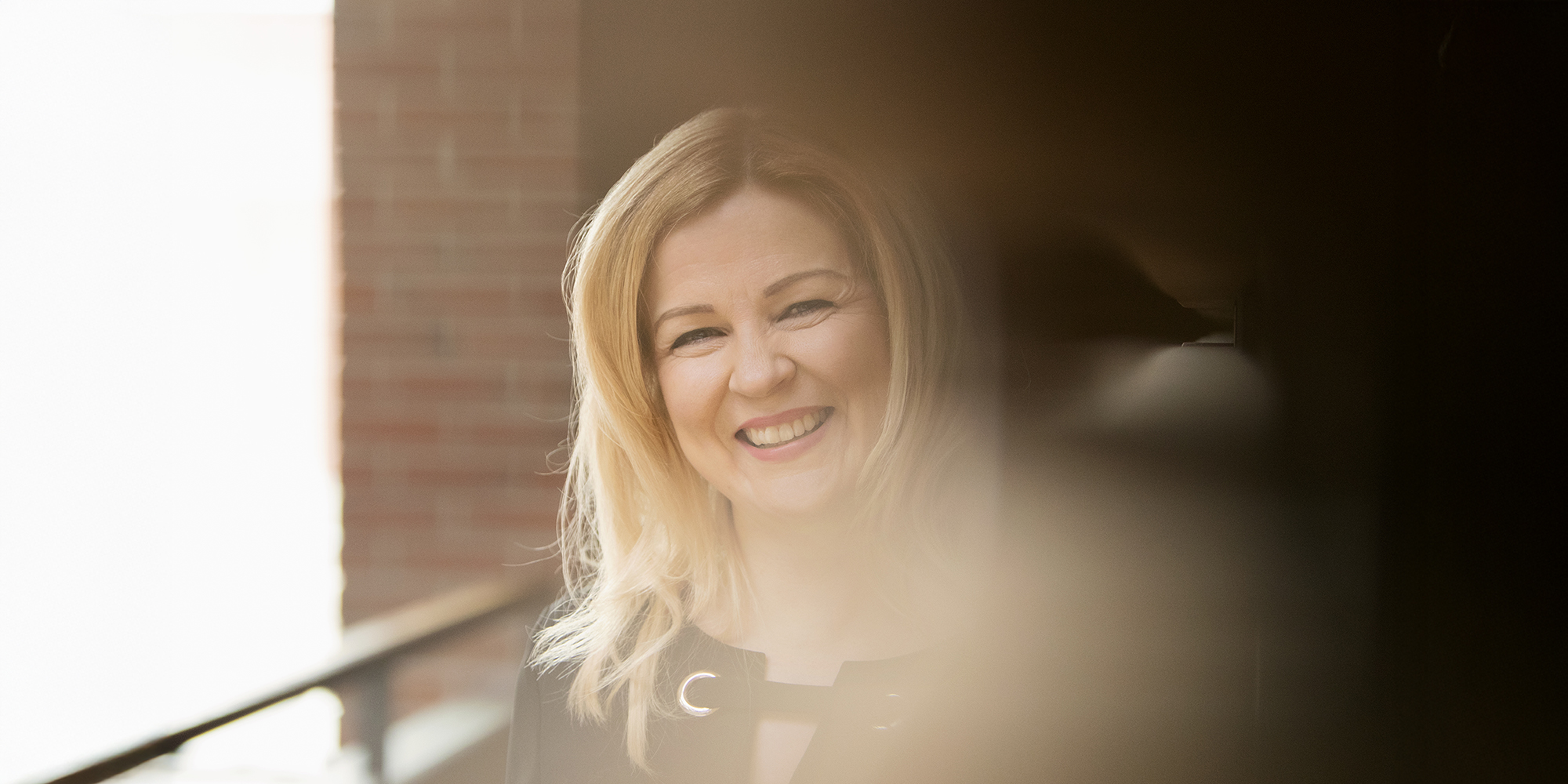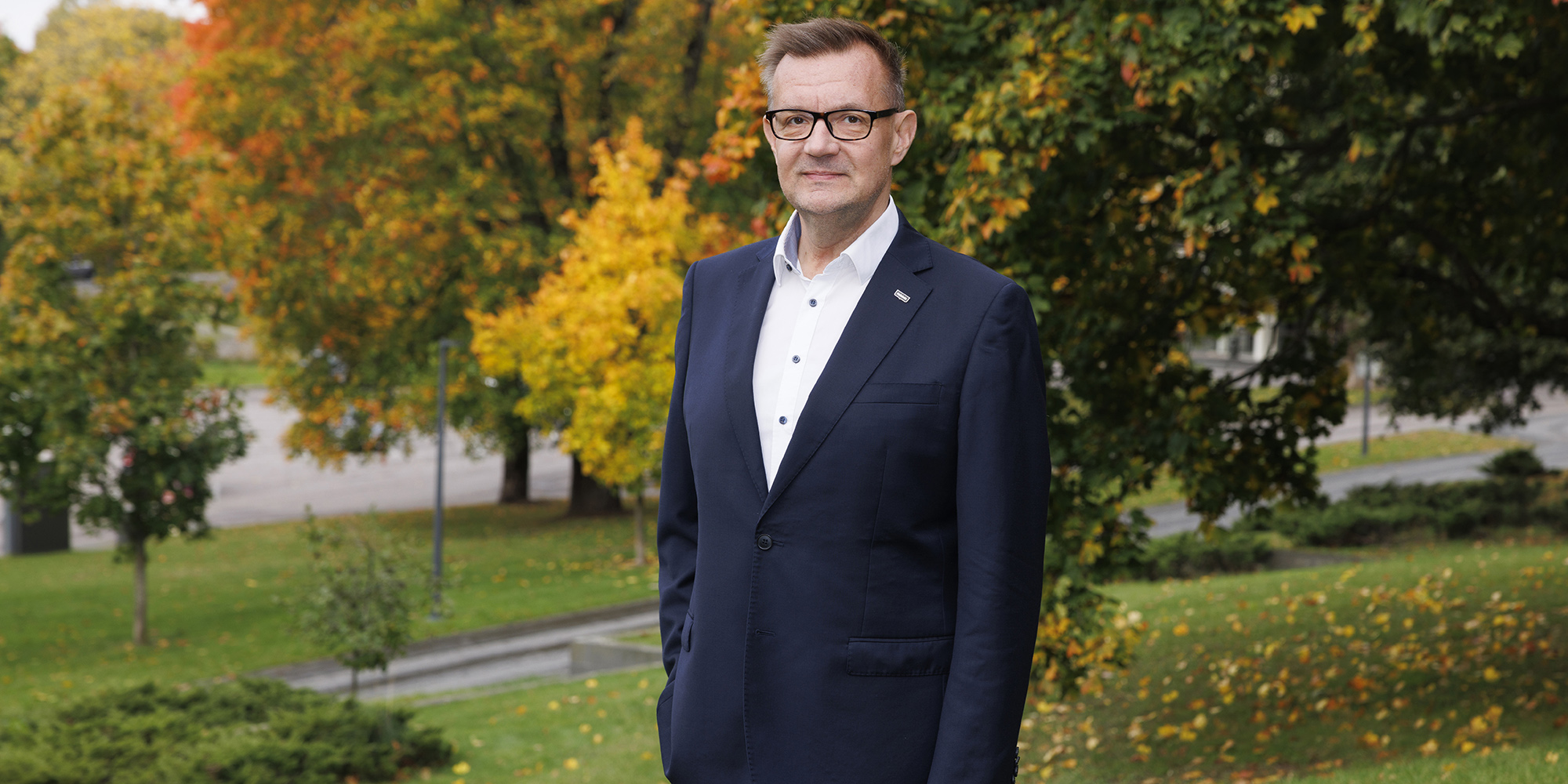Young people joining the workforce just before and during the Covid time have missed out on established office routines and interaction. And if they have popped into the office, they have probably been met with a deserted space and the hum of air-conditioning taking care of the soundtrack. Sitting down over a cup of coffee together – those golden opportunities to hear what’s really going on – is a rare treat nowadays. Will newbies even know what to miss?
”Heck it was fun to sit around the same table with my colleagues in the summer of 2020. I think many come to the office thinking they may bump into so and so at the coffee machine”, reminisces Juuso Lumilahti, student at the Faculty of Law at the University of Helsinki. He is a Knowledge Management trainee at Hannes Snellman and works in the Tech and Innovation team.
I think many come to the office thinking they may bump into so and so at the coffee machine."
With his thesis almost finished, Lumilahti is headed towards working full-time. ”As a young lawyer, I’m a little nervous about what flexibility actually means in hybrid work. Flexible for whom and where? I don’t completely buy into it. I insist on holding on to working where it makes sense rather where it should be done.”
New generations seem to be entering working life, and they won’t bother to turn up just to show their faces. Yet Lumilahti misses being at the office. After all, colleagues are the spice of working life.
The hybrid model may slow down getting to know one’s company and colleagues, but on the other hand, digital natives instinctively dive into remote technology. You won’t be likely to catch them complaining about an app’s particular features. They simply take them into use.
Lumilahti had the chance to try out a shadowing concept developed during a hackathon event, which is designed to give people at the law firm a better idea about what their colleagues actually do.
Managing Partner Riikka Rannikko shadowed Lumilahti for the course of one of his working days, and Lumilahti did the same to Rannikko: he tagged along at management team meetings, at a client meeting, and for the rest of Rannikko’s working day. The two then had an in-depth discussion.
”Remote work adds a new angle. It was a great two-day miniature mentoring session from a role model for sure. It gave a chance to think whether it was the direction I want to take. I asked Riikka why she has stayed at the company. Her answer was because she has always been treated so well there”.
Rannikko has been at Hannes Snellman for 22 years now, which sounds great to Lumilahti. Among the first age groups of generation Z, Lumilahti steers away from the thought of a higher threshold for approaching someone in a different position.
A couple of years ago, I would have raised my eyebrows if I’d overheard a trainee asking whether they can work from their summer cottage for a couple of weeks."
“You can ask anyone what they have on their desk and whether they could do with some help.” He feels that hybrid work has dismantled some of the hierarchy. Where remote work was generally seen as a privilege of seniors warranting merit, it is now open to anyone.
”A couple of years ago, I would have raised my eyebrows if I’d overheard a trainee asking whether they can work from their summer cottage for a couple of weeks.”
However, Lumilahti wouldn’t want to only work remotely. ”No one has gotten used to the format changing from live to TV mode. It leaves at least a part of the brain running on empty. I tend to get strength and energy from other people, but a screen takes it away.”
One thing is likely to stay the same
In the 2040s, Lumilahti will have a career of roughly twenty years behind him, the equivalent of today’s directors who began in the 1990s. Lumilahti may still remember the “awful Covid year” and subsequent talk about hybrid work as a bunch of nostalgic hype.
Around the 2050s, the thought of working at the office may sound just as bizarre as what generation X reminiscing on work in the 1990s sounds like to millennials. Thanks boomers, we’ve already heard about there not being any smartphones!
We may soon be swaying as avatars in virtual reality, but one thing is likely to stay the same.
Maybe the Covid year will make us appreciate our colleagues even more."
When Lumilahti wrote the weekly letter on behalf of the Managing Partner during the shadowing day, he chose to write about the significance of collaboration:
”We want to be surrounded by groups of people and be attached to them and their members. Maybe the Covid year will make us appreciate our colleagues even more. How can a community hold on to its members, and the members hold on to their community? Taking care of the community may officially fall under personnel management, but in my view, it is up to every employee. Let’s treat each other well and say hi to those we know and don’t know along the corridors at the office. I believe it will create a virtuous circle that makes people want to stay”, Lumilahti sums up his thoughts in the letter.
Like straight from the pen of future employees: expertly self-managing team members who won’t forget their turn to bring the cookies.
Read also: Hybrid Work Is Here - But Are We Trying to Get By in the New Reality with Our Old Ways?

